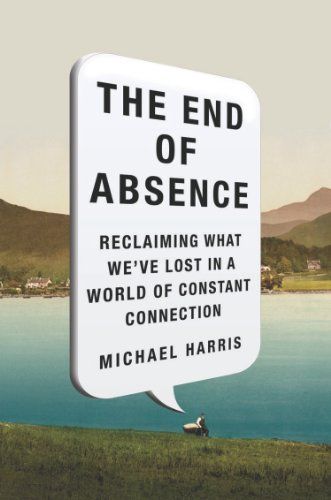Being Present in a World of Cell Phones and Social Media

So much of the time I’m not completely present. I’m thinking of what else I need to be doing, or somewhere else I would rather be. I don’t think I’m alone, either. I sometimes sense that others are half-present, suffering from what one person has called continuous partial attention. We can end up skimming through life, ministry, and relationships.

One of the culprits, to be honest, is technology. I find myself checking Twitter and Facebook more often than I’d like to admit. I sometimes suffer from phantom vibrations of my cell phone. I forgot my cell phone one evening at a concert and felt a little lost. I also felt strangely judgmental towards others at the concert who spent the evening looking at glowing screens rather than at the artist who was right in front of them.
And that’s the point: we miss what is right in front of us — stunning, average, or even negative — because we are plugged into screens that are roughly 8-10 square inches.
What’s hard to believe is how new a problem this is. I remember seeing the first iPhone from a friend who is a tech journalist, and it was only seven years ago. When I sent my first round of Facebook friend requests in 2007, I received this puzzled response from a university professor:
I have no idea what “Facebook” is. I’ll have to ask my boys…I suspect that they know what this is. Do let me know what you have in mind with this.
When I joined Twitter in 2007 (the same year as I joined Facebook and saw the first iPhone), it wasn’t the time suck that it is today. My first tweet, by the way, was a lame and only one word long:
laundry
— Darryl Dash (@DashHouse) March 3, 2007

In his book The End of Absence, Michael Harris observes that this is all so new that we haven’t even stopped to consider what we’ve lost when we’re always connected. “Soon enough, nobody will remember life before the Internet,” he says.
Just as previous generations were charmed by televisions until their sets were left always on, murmuring as consolingly as the radios before them, future generations will be so immersed in the Internet that questions about its basic purpose or meaning will have faded from notice. Something tremendous will be missing from their lives— a mind-set that their ancestors took entirely for granted— but they will hardly be able to notice its disappearance.
We went camping this summer, and were completely unplugged (no cell phone signal, no Internet, no power) for two weeks. By the time I came back, I found that I had no desire to immerse myself in social media again. Since then, I’ve drastically cut back on the number of blogs I follow, and the number of tweets I read. (I follow over 2,700 people but make use of lists to help me manage that number.) It took a complete break from social media for me to be ready to make drastic changes. And yes, I’ve thought about going back to a dumb phone, although that may be a little too drastic. (See David Wells, though, on six ways that cell phones are changing us. The article is definitely worth careful thought).
There’s no going back, but there are some steps we can take. I’ve found these ones helpful:
- Consider a digital fast. It is hard to be aware of how deeply we are immersed in technology until we take a break from it. Take a break as an experiment to see how you feel.
- Make it a little bit harder to pull out your cell phone when you’re bored. At least you will be aware of when you pull it out absent-mindedly to pass the time, when you could instead be alone with your thoughts or the people around you. (Surprisingly, some people would rather be shocked than to be alone with their thoughts.)
- Turn off the screens at a certain time of the day. We’ve tried to start putting our screens (except for the Kindle) away at 8:00 at night. It’s made my evenings a lot more enjoyable.
- Cut back. Stop reading so many blogs and tweets. Separate the essential few from the trivial many. (Greg McKeown’s book Essentialism: The Disciplined Pursuit of Less is helpful here.)
I continue to live both online and off, but I want to be deliberate about where I am choosing to focus. This will no doubt be an ongoing struggle, but I want my life back. I want to be present.
I’m guessing that you do too. I’d love to hear your thoughts on how you are managing your life so that you are present despite the new technologies that can capture us before we even think.






